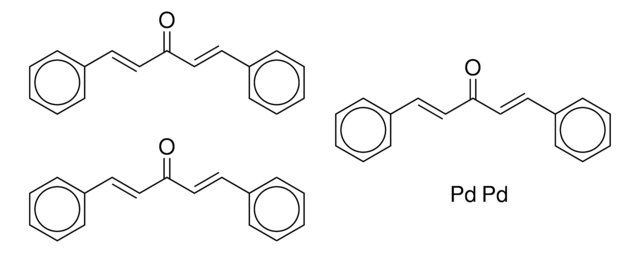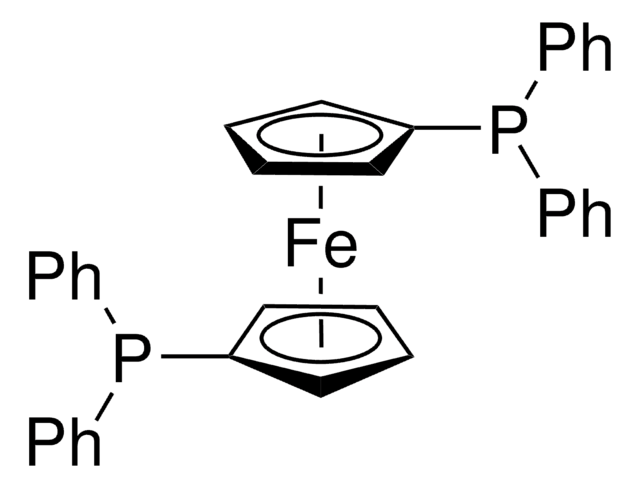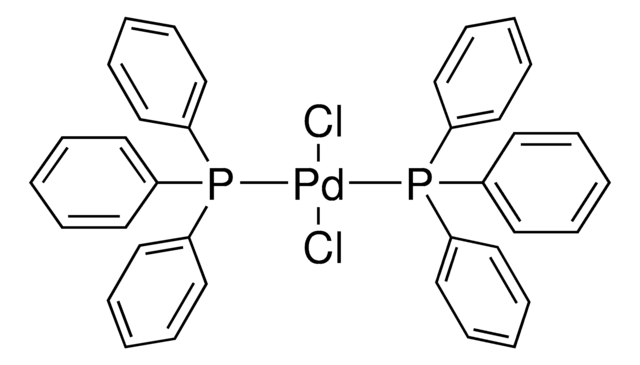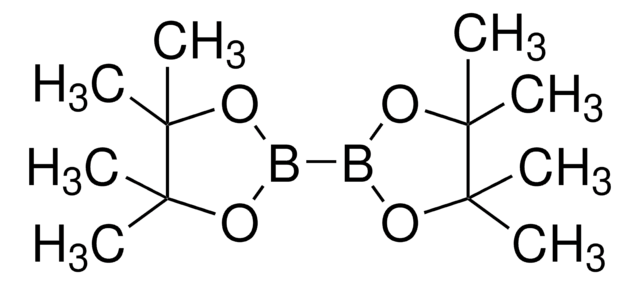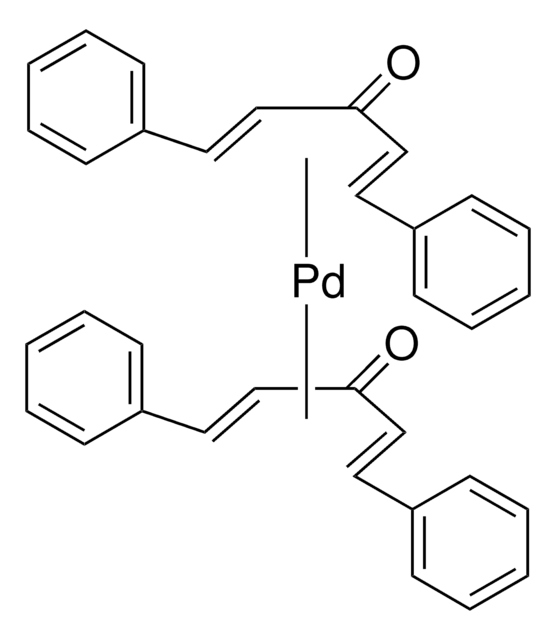919780
[1,1′-Bis(diphenylphosphino)ferrocene]dichloropalladium(II) ChemBeads
Sinónimos:
Pd(dppf)Cl2
About This Item
Productos recomendados
form
solid
Quality Level
composition
~ 4 wt.% loading of catalyst
reaction suitability
reagent type: catalyst
reaction type: Cross Couplings
InChI
1S/2C17H14P.2ClH.Fe.Pd/c2*1-3-9-15(10-4-1)18(17-13-7-8-14-17)16-11-5-2-6-12-16;;;;/h2*1-14H;2*1H;;/q2*-1;;;2*+2/p-2
InChI key
NXQGGXCHGDYOHB-UHFFFAOYSA-L
Application
Pd(dppf)Cl2 may be used as an effective palladium catalyst in the following reactions:
- Cross-coupling of sec-alkyl and n-alkyl Grignard reagents with high yield and selectivity.
- Suzuki coupling of aryl boronic esters with [11C]methyl iodide to form functionalized [11C]toluene derivatives.
- Kumada cross-coupling of 1,3,5-tribromobenzene with Grignard reagents to form star-shaped oligothiophenes.
ChemBeads are chemical coated glass beads. ChemBeads offer improved flowability and chemical uniformity perfect for automated solid dispensing and high-throughput experimentation. The method of creating ChemBeads uses no other chemicals or surfactants allowing the user to accurately dispense sub-milligram amounts of chemical.
Learn more about ChemBeads products
For larger scale uses, product also available in powdered form (697230) & (931217)
Other Notes
Versatile Methods to Dispense Sub-Milligram Quantities of Solids using Chemical Coated Beads for High-Throughput Experimentation
ChemBead Enabled High-Throughput Cross-Electrophile Coupling Reveals a New Complementary Ligand
Related product
signalword
Danger
hcodes
Hazard Classifications
Carc. 1B Inhalation
Storage Class
6.1D - Non-combustible acute toxic Cat.3 / toxic hazardous materials or hazardous materials causing chronic effects
wgk_germany
WGK 3
flash_point_f
Not applicable
flash_point_c
Not applicable
Elija entre una de las versiones más recientes:
Certificados de análisis (COA)
Lo sentimos, en este momento no disponemos de COAs para este producto en línea.
Si necesita más asistencia, póngase en contacto con Atención al cliente
¿Ya tiene este producto?
Encuentre la documentación para los productos que ha comprado recientemente en la Biblioteca de documentos.
Nuestro equipo de científicos tiene experiencia en todas las áreas de investigación: Ciencias de la vida, Ciencia de los materiales, Síntesis química, Cromatografía, Analítica y muchas otras.
Póngase en contacto con el Servicio técnico![[1,1′-Bis(diphenylphosphino)ferrocene]dichloropalladium(II)](/deepweb/assets/sigmaaldrich/product/structures/130/734/8846aa26-1858-458a-998d-8c306c13bf0f/640/8846aa26-1858-458a-998d-8c306c13bf0f.png)
![[1,1′-bis(difenilfosfino)ferroceno]dicloropaladio(II), complejo con diclorometano](/deepweb/assets/sigmaaldrich/product/structures/825/986/4317978b-1256-4c82-ab74-6a6a3ef948b1/640/4317978b-1256-4c82-ab74-6a6a3ef948b1.png)
